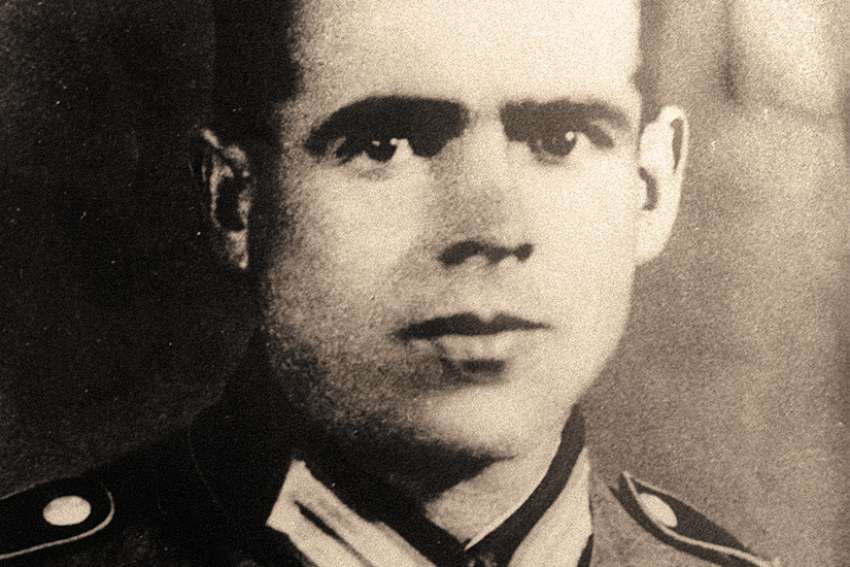You can also listen to this article
Where are all the quality Christian films?
Sr. Helena Burns, FSP
When one hears about a new “Christian” or “Catholic” film, one usually emits an audible groan. Why so? Because — horrifyingly and too often accurately — “Christian” or “Catholic” film is synonymous with “poor quality” and “preachy.”
How do we account for this sorry state of affairs? First of all: Money. To create a splendiferous visual extravaganza requires boatloads of lucre. Second of all: Talent. The willing and the able are two separate categories. It’s not enough to desire great screen narratives. One must be able to pull them off in spades. Let’s face it, Hollywood — despite its amorality and immorality over the years — has always known how to tell a good story! Third of all: Collaboration and maniacal dedication. The saying, “It takes an army to make a film” is absolutely true and, I would add, a fanatically devoted army. Film (and TV) production requires that you have no life. No other life.
Now. You might interject here and protest that: “Hey, with today’s digital media: 1) The price of filmmaking has come way down. We don’t need Tinseltown to make a film any more. Quality films can be shot exclusively on iPhones and edited with inexpensive top-notch software. 2) There’s plenty of Christian talent out there, and now they don’t have to wait to be hired by a Christian-exclusitory industry. 3) The Church is the most collaborative and faithful gathering, ever, aren’t we?
In response: 1) True. Films can now be made on the cheap, technically speaking, but what about paying actors and crew? What about costuming, make-up, props, sets, sound stages, transportation, craft services, legal services, trailers, hotels, etc.? 2) True. But once again, how does one make a living, raise a family in this self-made world? 3) Hmmm. We should be. What’s needed from today’s Church in regard to film (and all the arts) is focus and seriousness of purpose.
The Church used to be the patron of the arts. She used to fund the best artists and artisans to create lasting religious masterpieces honouring God and uplifting human dignity, whether fine art paintings, sculptures or architecture. Of course, these artists were more often than not people of faith themselves, and certain occupations, such as novelists, for example, were not necessarily sponsored by the Church. It can be observed that the Catholic Church has been leaning more toward the corporal works of mercy of late and has put the spiritual works on the back burner. On extremely low heat. The arts are most certainly a spiritual work of mercy.
One all-important aspect, essential to making or breaking any film — or any product, for that matter — is … Distribution. Promotion. Marketing. How many amazing products gather dust and go away because the cart forgot the horse? So, rather than be a Debbie Downer here, what can you and I do to ensure that quality Christian or Catholic films see the light of day and “speed on and triumph”? I have two suggestions.
1) Consider donating not only to worthy film projects, but also to worthy film students. Just like any other field, film requires professional knowledge of the art, craft, science, discipline and history of film, as well as all that amazing personal digital technology that can turn a whiz kid into a bonafide film studio. Know a young person interested in filmmaking? Help sponsor them to attend Act One Hollywood (actoneprogram.com), John Paul II the Great Catholic University (jpcatholic.edu) or a secular film school.
2) Rather than being a griping, bemoaning, head-shaking, naysaying, anti-arts curmudgeon, use your time, your voice, your family and friends, your business associates, your e-mail contacts and social media platforms to amplify, boost, highlight and raise awareness about this need, as well as spreading the word to support amazing Catholic and Christian films when they come out. And remember, a film doesn’t have to be from a specifically Catholic or Christian source to reflect a Christian worldview. A Hidden Life is the story of Franz Jagerstatter, one of the only Austrians to stand up to Hitler. (I was blessed to be at the TIFF 2019 screening.)
“We need to put down the scissors of censorship and pick up the camera ourselves. … The power of the cinema surpasses that of the school, the pulpit and the press and always produces greater results” – Blessed Fr. James Alberione.
Learn more about Fr. Alberione on YouTube (with particular attention to the lighthearted “Father Alberione Auto Tune” by Clark Jaman from JungleHeart Productions, Saskatchewan)
(Sr. Helena, fsp, is a Daughter of St. Paul. She holds a Masters in Media Literacy Education and studied screenwriting at UCLA. www.HellBurns.com Twitter: @srhelenaburns)


